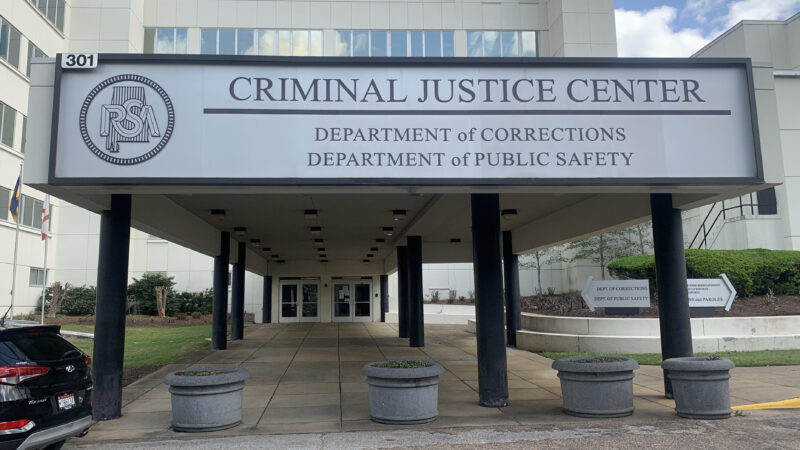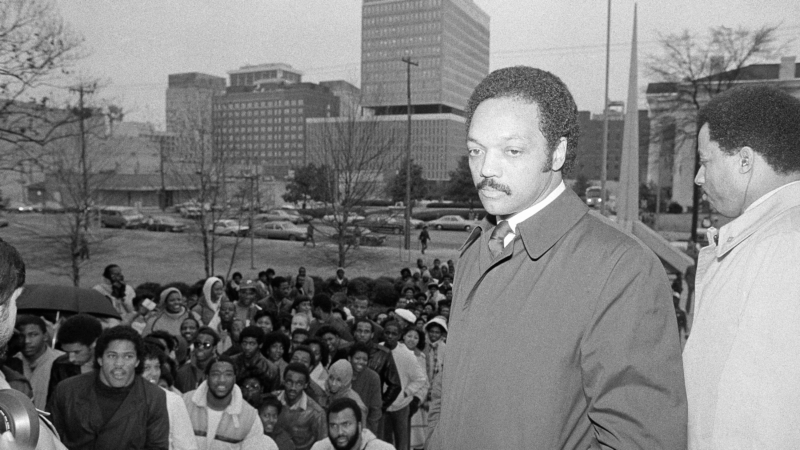Alabama wants to lower recidivism rates by 2030. What are the obstacles?
Last year, Alabama set an ambitious goal for itself: lower recidivism by 25% and increase post-incarceration employment rates by 50% by 2030. But a recent study on the state’s criminal justice re-entry programming shows that many formerly incarcerated people are falling through the cracks. WBHM’s Noelle Annonen sat down with WBHM’s Kelsey Shelton to explain the study’s findings.
Tell us more about how the state is attempting to lower recidivism rates?
Re-Entry Alabama is a commission made up of state department heads who are drafting a plan to help incarcerated people return to their communities. The commission had an assessment of Alabama’s current re-entry system done by the Council of State Governments, or CSG.
So CSG found that a quarter of formerly incarcerated people who graduated from state-run counseling, educational and career programs returned to Department of Corrections custody within three years.
Is that because people are reoffending?
It’s complicated. First of all, the correctional system itself is struggling to properly set up former prisoners with what they need in a timely manner.
This group of people who are returning to the system after release tend to struggle with a certain set of problems, CSG found. Many don’t have health insurance even though a lot of people struggle with substance use. A lot of people don’t have a driver’s license, which you need to get to your job. And some don’t even have housing when they are released. CSG reported that the correctional system doesn’t even always give incarcerated people enough time to get any of this set up.
Whatever programs the system does offer that are meant to help come with long waitlists because of overcrowding in the correctional facilities and a pretty major staffing crisis in the department.
People I spoke with who sit on this commission essentially say that people reoffend when they are not able to reestablish their lives after release; and system failure plays a role in that.
CSG also says that Alabama doesn’t even have state-run transitional housing programs, which makes everything that much harder.
One of the people on this commission who met with me was Cam Ward, director of the state Bureau of Pardons and Paroles.
“If you don’t have a house and transportation you’re just not going to be able to get a job and be productive,” Ward said. “It’s just not going to happen.”
I will say there are some state correctional facilities that do offer programs that would help prisoners do things like get vital paperwork and build their resumes. But even those programs do not always offer access to the technology that they would be using out in the workforce. When someone has been incarcerated for a while, they can really rely on technology literacy training. Without it, it becomes that much harder to get a job.
On top of that, the employment system has a lot of bias against hiring formerly incarcerated people.
Tell me more about this bias the employment system has?
So CSG says there are 761 provisions of Alabama law that restrict employment rights, benefits and opportunities based on prior criminal convictions. When CSG reviewed an online job posting site called Alabama Works, for example, out of about 8,000 jobs, only 64 were available for former prisoners.
I met with Jonathan McNair to discuss this further. He’s a spokesperson for the Department of Workforce.
“Employment is one of the biggest indicators of people not going back to prison and not reoffending and being able to kind of continue being a positive member of society,” McNair said.
On top of that, not all employers are even willing to hire formerly incarcerated people for any kind of job. CSG says employers are more likely to hire formerly incarcerated people in jobs like food service management, cooking, and steel work. But whether or not a specific state correctional facility actually offers training for these jobs is hit or miss.
Were there any other big reveals you found in CSG’s study?
Yes. People struggling with substance use are particularly at risk because treatment can be so expensive and, like we talked about, a lot of people reentering their communities don’t have health insurance. CSG reported that this is the biggest barrier for formerly incarcerated people.
Many treatment facilities don’t take people with complex needs or without a 30-day supply of medication before arrival. Incarcerated people usually have to rely on their families to get their medical treatments filled because most treatment facilities don’t have staff to help coordinate that.
Has the state been successful so far in its efforts to lower recidivism?
So the state commission that’s in charge of coming up with an action plan for handling all of this has gotten its report. Now, CSG is going to help them draft recommendations for solutions, which they will start reviewing and finalizing early next year. Finalizing a way for the state to reduce recidivism and increase employment by 50% by 2030, comes after that, but there’s no timeline yet.
US military airlifts small reactor as Trump pushes to quickly deploy nuclear power
The Pentagon and the Energy Department have airlifted a small nuclear reactor from California to Utah, demonstrating what they say is potential for the U.S. to quickly deploy nuclear power for military and civilian use.
How Nazgul the wolfdog made his run for Winter Olympic glory in Italy
Nazgul isn't talking, but his owners come clean about how he got loose, got famous, and how they feel now
Court clears way for Louisiana law requiring Ten Commandments in classrooms to take effect
The 5th U.S. Circuit Court of Appeals has cleared the way for a Louisiana law requiring displays of the Ten Commandments in public classrooms to take effect.
From cubicles to kitchens: How empty offices are becoming homes
Many U.S. cities have too many office buildings and not enough homes. Developers are now converting some old offices into apartments and condos, but it's going slowly.
Opinion: The enduring dignity of Jesse Jackson
Rev. Jesse Jackson died this week at age 84. NPR's Scott Simon remembers covering Jackson's 1984 presidential campaign in Mississippi.
A huge study finds a link between cannabis use in teens and psychosis later
Researchers followed more than 400,000 teens until they were adults. It found that those who used marijuana were more likely to develop serious mental illness, as well as depression and anxiety.






